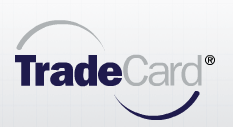 | |
| Company type | Private |
|---|---|
| Industry | Software, Information Technology |
| Founded | 1999 |
| Founder | Kurt Cavano [1] [2] [3] |
| Defunct | 2013 |
| Headquarters | , United States |
Area served | Global |
Key people |
|
| Products | supply chain management software |
| Services | procure to pay, trade finance, work in process tracking, pack and scan, shipment building, purchase order collaboration |
| Owner | Warburg Pincus |
Number of employees | 400 |
| Website | www |
TradeCard, Inc. was an American software company. Its main product, also called TradeCard, was a SaaS collaboration product that was designed to allow companies to manage their extended supply chains including tracking movement of goods and payments. [4] TradeCard software helped to improve visibility, cash flow and margins for over 10,000 retailers and brands, factories and suppliers, and service providers (financial institutions, logistics service providers, customs brokers and agents) operating in 78 countries. [5]
Contents
On January 7, 2013, TradeCard and GT Nexus announced plans to undergo a merger of equals, creating a global supply-chain management company that would employ about 1,000 people and serve about 20,000 businesses in industries including manufacturing, retail and pharmaceuticals. The combined company rebranded itself as GT Nexus. [6]